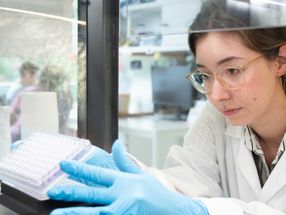Finnegan Henderson Releases 2004 Biotechnology Innovation Report
Biotech and Pharmaceutical Patenting Have Leveled Off After Rise in 1990s, Report Says
Advertisement
Washington. The Washington, D.C.-based Intellectual Property law firm Finnegan Henderson, the largest IP law firm in the world, will release its 2004 biotechnology Innovation Report at the opening session of the Intellectual Property/Legal Track at the BIO 2004 Annual International Convention held this week in San Francisco. The report details patenting, patent ownership, and patent litigation trends specifically within the biotechnology and pharmaceutical industries.
The report provides empirical data to help gauge practice and policy, dispel controversy, forge consensus, and ensure a robust patent system, according to Jean Burke Fordis, Finnegan Henderson's Biotechnology/Pharmaceutical Practice Group Leader. Recent reports issued by the Federal Trade Commission and the National Academy of Sciences suggest a continued interest in the patent system at the highest levels, to make sure it keeps the pace of new technologies.
The report was written and edited by Finnegan Henderson attorneys and contains information on patenting and patent litigation trends through Dec. 31, 2003. Divided into three sections -- trends in the U.S. Patent and Trademark Office (USPTO), trends in the courts, and resources -- the report analyzes data on patent subject matter, ownership and litigation, and provides graphical, tabular and textual resources for the biotech and pharmaceutical business and legal communities.
Key findings include:
* After rising considerably during the 1990s, biotech and pharmaceutical patenting have leveled off.
* Biotech patent ownership has shifted further in favor of the private sector, at the apparent expense of ownership by universities and the U.S. government.
* Patent litigation has been on the rise generally, a likely reflection of the widespread recognition of the increased value of intellectual property assets. Biotech and pharmaceutical patent litigation appear consistent with this trend.
* Lower court decisions in pharmaceutical and biotech patent cases on appeal in 2003 favored accused infringers over patentees by a margin of 2:1.
* In 2003, lower court decisions in biotech patent cases were affirmed 56% of the time, while lower court decisions in pharmaceutical (ANDA) patent cases were affirmed 82% of the time.

























































